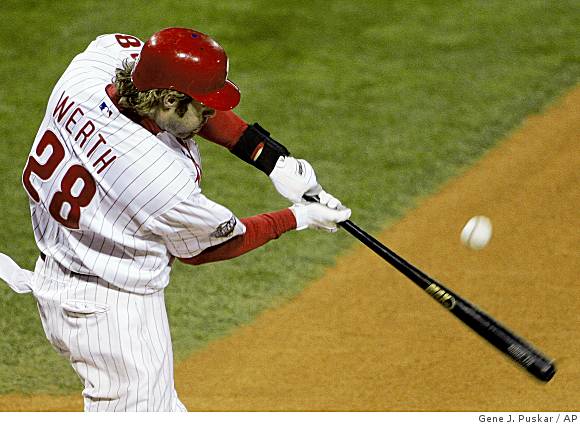

For the Mets, any sort of offensive firepower is welcome. Bay also appeared to be asking for slightly less than Matt Holliday, making him slightly more desirable to a team looking to add a big bat. The problem isn’t so much his age (he will be 32 late next season); he’s certainly in his baseball prime. It has more to do with his new digs up in Flushing.
We witnessed with our own eyes how ridiculous the new Citi Field can be for power hitters. To be fair, the Mets were missing their core of sluggers, but when you hit just 49 bombs in your own yard, it’s obvious a mistake made when the architect put the blueprints together. Bay will help solidify the middle of the order that, so far, still has Carlos Beltran and David Wright. Beltran dealt a bum knee in 2009 and David Wright was beaned on the head, but never really showed his power stroke even when healthy. Just 1.6 home runs were hit on average per game, according to hittrackeronline.com. So, injuries coupled with a powerless lineup, contributed to the awful performance.
As for Bay, he will hit home runs. In fact, he’s hit 185 in his career including a career-best 36 last season in Boston. It was the fourth time Bay reached has 30. It might be the last time we see him do so, and here’s why: Fenway Park’s Green Monster plays games with your head.
It’s a shade over 300 feet from home plate, meaning it’s relatively easy to hit over it. When Bay gets to Citi, which reaches 331 in left and 371 in the alley, will he swing harder because he believes he has to? Will the dimensions wreck his focus as a very good contact hitter? Add that to the pressure of playing for New York, with the bonus of being the guy who hs to help save the franchise from the depths of the NL. Even out in Pittsburgh where Bay resided for four-plus seasons, he swung for a relatively short wall. PNC Park goes 325 down the line, complete with a 36 inch wall (kidding, it’s 72 inches). He’s used to an easy target in left and he’ll now have to deal with more between him and the left field seats.
Defensively, Bay was decent for his position. He had zero errors on the season, which proves he’s no slouch, but came in at a minus-4 on the Fielding Bible’s plus/minus scale. So he was actually below the average major league left fielder in terms of defensive abilities for the ’09 year. Add in a larger pasture to defend, and there may be some problems in ’10.
Overall, he has the tools to add a few notches to the win column for the Mets, especially when surrounded by a full complement of Reyes, Beltran, and Wright. However, it’s pitching that really killed NY in 2009, an area that has not gotten any stronger for the team. If I had to toss out an early prediction, I’d say 28 homers for Bay, with 100-plus RBI, and a jump to 78 wins for the Mets.
Another dilemma – one that has little to do with the Mets – is the Jayson Werth Factor. How does the Bay signing impact the Phillies potentially re-signing Werth when he becomes a free agent? Scott Lauber of the News Journal talked about this in his blog yesterday; and I agree with the sentiment that it now becomes that much harder to ink Werth long term. Their numbers are similar in many facets of the game, however, Werth has more speed and is noted for his defensive acumen.
The four-year deal for Bay (with a fifth year vesting option) could spell the end for Jayson Werth in red pinstripes if he is set on parlaying his play into the best possible contract. Lauber does point to Bay’s track record, but Werth can continue to build his resume with another strong season in 2010. Plus, as Lauber mentions, Werth is a “late bloomer”. He’s managed just 619 games played strewn across seven different seasons. In six full years, Bay has over 900 games under his belt. So while Werth is behind the curve, he certainly is setting himself up for major payday, and one that may have been put into context by Bay’s new deal with the Mets.